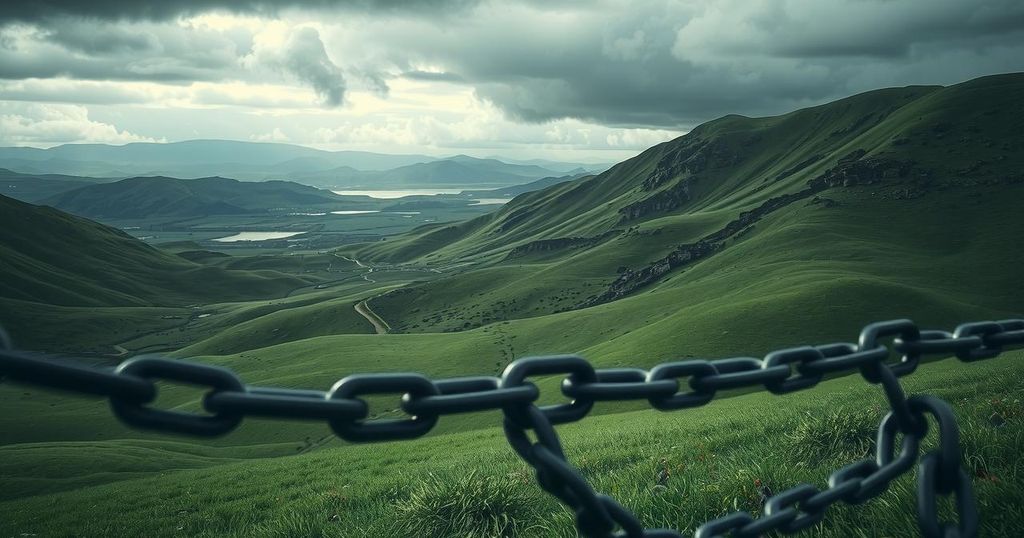Heavy clashes erupted in Goma, Democratic Republic of Congo, between Rwanda-backed M23 rebels and government forces, resulting in fear and confusion among residents. M23 claims control over the city, but reports indicate government forces remain present. The conflict has displaced hundreds of thousands and raised significant humanitarian concerns, prompting calls for international intervention and the cessation of foreign support for the rebels.
A humanitarian crisis unfolded in the Democratic Republic of Congo on Monday as fierce battles erupted between the M23 rebel group, allegedly backed by Rwanda, and government troops in Goma, the capital of North Kivu province. Residents reported continuous bombardments and expressed fear and confusion, stating they felt trapped amidst the violence. “We are surrounded; there is no place to go,” reported a local taxi driver, emphasizing the dire circumstances as roads remained impassable due to the conflict.
M23 spokesperson Lawrence Kayuka proclaimed a “liberation” of Goma, urging Congolese military personnel to surrender and advising residents to remain calm. However, local journalist Jimmy Bakomera contradicted this claim, asserting that government forces still held positions in certain areas of the city. Meanwhile, a statement from Uruguayan military support for UN operations indicated that M23 was advancing and causing Congolese soldiers to abandon their posts.
In a recent U.N. Security Council meeting, Bintou Keita, head of the U.N. stabilization mission in Congo, communicated the severity of the situation, highlighting blocked supply routes to Goma and encroaching rebel forces. Tragically, three U.N. peacekeepers have lost their lives in recent days amidst this escalating conflict. The situation has intensified since the untimely death of the general overseeing North Kivu’s defense in battle last week.
The M23 rebel group has a historical background of capturing Goma in 2012 for a brief period, indicating a return to violence that threatens the stability and mineral wealth of the region. Since 1996, approximately six million individuals have succumbed to war-related consequences. This year alone, the conflict has displaced nearly 400,000 people across North and South Kivu, with recent U.N. estimates indicating an alarming doubling of displaced individuals within a week.
U.N. Secretary-General António Guterres recently urged the Rwanda Defense Forces to cease their support for the M23 group and to withdraw from Congolese territory. In light of the escalating violence, the U.S. Embassy in Kinshasa advised American citizens to evacuate North Kivu while borders remained accessible, reflecting growing international concern about the deteriorating security landscape.
The ongoing conflict in the Democratic Republic of Congo has deep historical roots, particularly involving ethnic tensions and the presence of various militia groups, such as the M23. This conflict has been characterized by significant humanitarian crises and violence, impacting millions of people throughout the years. The region of North Kivu has become a focal point for clashes between armed groups and government forces, further complicated by external influences such as alleged support from neighboring Rwanda. Recent escalations threaten to regenerate patterns of violence previously witnessed in the region, emphasizing the need for urgent international attention and intervention.
The situation in Goma represents a critical juncture in the protracted conflict in the Democratic Republic of Congo, with the M23 rebel group’s activities exacerbating an already dire humanitarian crisis. As violence persists, local residents are left in perilous circumstances, with essential supply routes blocked and security deteriorating. Calls for the cessation of outside support to rebel movements and appeals for international intervention are critical to mitigate further humanitarian suffering and restore stability to the region.
Original Source: www.washingtonpost.com






